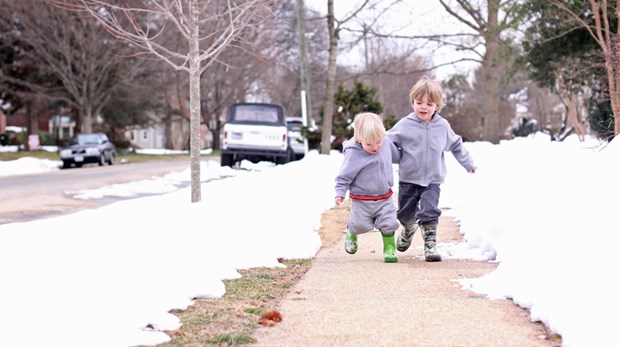
Recently I’ve been working on a talk called “Talking with your Children about What Matters Most.” I thought it would be easy to write, given that I’ve recently written a book with the subtitle “Learning from my Children about What Matters Most.” And yet the talk has been stubbornly resisting me. Or perhaps I have been stubbornly resisting it.
Either way, although I can offer some advice based upon nine years of raising children, and before that six years of working with high school students, at the end of the day I’m not a parenting expert. I haven’t taken tons of classes or read dozens of books or written a thesis or taught a class. The books I have read—Baby Whisperer back in the kid-won’t-sleep days, Boundaries for Kids in the can’t-take-no-for-an-answer days, Positive Discipline for Preschoolers in the throw-things-across-the-room-when-he-doesn’t-get-his-way days, Parenting the Wholehearted Child in the how-do-I-teach-them-about-God days—have all been helpful. And they’ve also (with the notable exception of Parenting the Wholehearted Child) left me feeling somewhat bewildered and defeated as a mom.
Yes, Penny slept through the night at seven weeks and I thought I was a sleep genius. Then William came along and cried the whole night through for nearly the first year of his life. Yes, I held the line and my first child had limited screen time and ate muenster cheese and avocado as a one-year old and learned sign language. And now her little sister demands time on the iPad and a lollipop and I cave. Often.
So what matters when it comes to our kids? Well, on some level, everything matters. Food and manners and faith and homework and listening and sharing and friendship and piano lessons. And on another level, if I’ve learned anything from this past decade, it is that the only thing I need to teach my children, again and again and again, is that they are human beings.
I don’t ever actually say to them, “You are a human being.” But I try to teach them what it means to be human—that they are limited, fallible, and deeply loved. Limited. Fallible. And deeply loved. As it turns out, they’ve taught me the same thing in return.
This morning, I read from the Jesus Storybook Bible the story of Adam and Eve in the garden. Marilee sat as close to the book as she could. She hadn’t heard this story before. Her eyes got big with concern when they disobeyed God. Her little world was shaken a little at the thought that this fundamental relationship of love had been broken.
“Is sin real?” she asked, and I think she wondered if sin was a physical object, like a plate or a rock. I think she hoped it was like a fairy or a dragon, not an actual force wreaking havoc in our world. “Is it big?”
Before I could answer, William said, “Marilee. Sin is real. And it’s big. But God’s love is bigger.”
I haven’t done everything right as a parent in the past, nor will I in the future. I give in to our children’s demands when I shouldn’t, and I ignore their requests for attention when I should be riveted upon them. I am fallible, and they need to know that about me in order to understand it about themselves. Even when I’m not to blame for it, I can’t solve their every problem or calm their every fear or provide for their every need. Even if I didn’t screw up, I’m still limited in my abilities, and again, they need to know that about me in order to understand it about themselves. Fallible. Limited. Human.
I teach them this truth through talking them through their own bad choices, making them apologize to one another with at least a pretense of sincerity, and by asking them for forgiveness when I’m in the wrong. I teach them by reading the story of Adam and Eve and talking about how we are similar to them even now. I teach it by praying with them “Sorry, God,”—giving them a chance to say what they’ve done wrong (which almost always involves hitting a sibling) and giving them a chance to hear me say what I’ve done wrong (which almost always involves worrying).
But before and after and in the middle of all that talk and action and thinking and prayer about limitations and fallibility, about sin, I try to teach them about love. With lots of hugs. Lots of words of affirmation, for them and for myself, not only that I love them but that God loves us. And finally, with lots of action—from the simplest dishwashing and toenail cutting to the more complicated decisions to put aside work and go sledding with William, to turn off the radio and talk with Penny about what happened at school, to sit at Marilee’s bedside a few more minutes as she drifts off to sleep.
I have plenty to learn as a parent, but I think I’ve figured at least this much out. They have taught me—by breaking me down and growing me up—that I am a human being. Fallible. Limited. Beloved.
My job is to teach it to them right back.
Support our work. Subscribe to CT and get one year free.
Recent Posts

The Only Thing You Need to Teach Your Children
The Only Thing You Need to Teach Your Children
The Only Thing You Need to Teach Your Children
The Only Thing You Need to Teach Your Children














